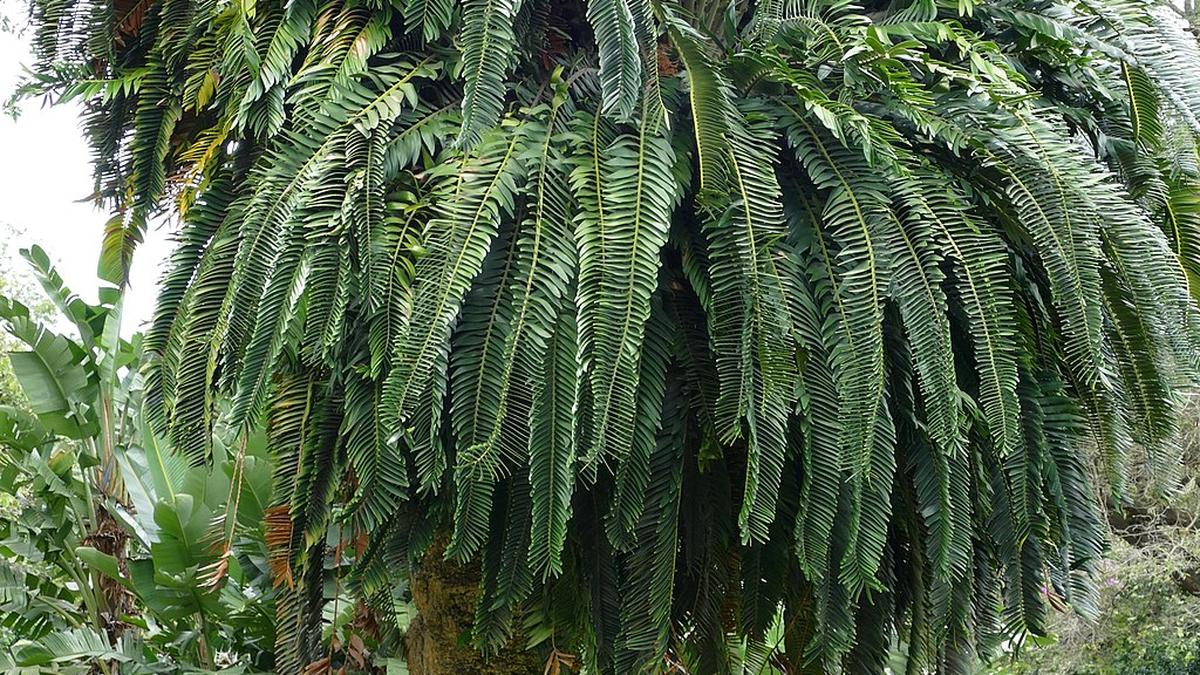
Scientists search for a female partner for world’s ‘loneliest’ plant Premium
The Hindu
Scientists search for a female partner for world’s ‘loneliest’ plant
“Surely this is the most solitary organism in the world,” wrote palaeontologist Richard Fortey in his book about the evolution of life.
He was talking about Encephalartos woodii (E. woodii), a plant from South Africa. E. woodii is a member of the cycad family, heavy plants with thick trunks and large stiff leaves that form a majestic crown. These resilient survivors have outlasted dinosaurs and multiple mass extinctions. Once widespread, they are today one of the most threatened species on the planet.
The only known wild E. Woodii was discovered in 1895 by the botanist John Medley Wood while he was on a botanical expedition in the Ngoye Forest in South Africa. He searched the vicinity for others, but none could be found. Over the next couple of decades, botanists removed stems and offshoots and cultivated them in gardens.
Fearing that the final stem would be destroyed, the Forestry Department removed it from the wild in 1916 for safekeeping in a protective enclosure in Pretoria, South Africa, making it extinct in the wild. The plant has since been propagated worldwide. However, the E. woodii faces an existential crisis. All the plants are clones from the Ngoye specimen. They are all males, and without a female, natural reproduction is impossible. E. woodii’s story is one of both survival and solitude.
My team’s research was inspired by the dilemma of the lonely plant and the possibility that a female may still be out there. Our research involves using remote sensing technologies and artificial intelligence to assist in our search for a female in the Ngoye Forest.
Cycads are the oldest surviving plant groups alive today and are often referred to as “living fossils” or “dinosaur plants” due to their evolutionary history dating back to the Carboniferous period, approximately 300 million years ago. During the Mesozoic era (250-66 million years ago), also known as the Age of Cycads, these plants were ubiquitous, thriving in the warm, humid climates that characterised the period.
Although they resemble ferns or palms, cycads are not related to either. Cycads are gymnosperms, a group that includes conifers and ginkgos. Unlike flowering plants (angiosperms), cycads reproduce using cones. It is impossible to tell male and female apart until they mature and produce their magnificent cones.

These are, of course, all worthy and wonderful resolutions. But I gave up smoking years ago, don’t eat red meat now and wake up early anyway. Maturity is that time in your life when you can make no more new year resolutions. Not because you are perfect and have no bad habits, but because you’d like to keep the remaining bad habits, thank you very much.










